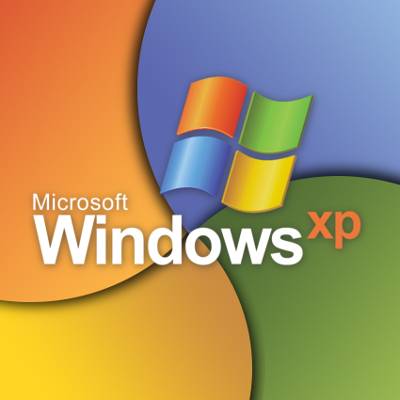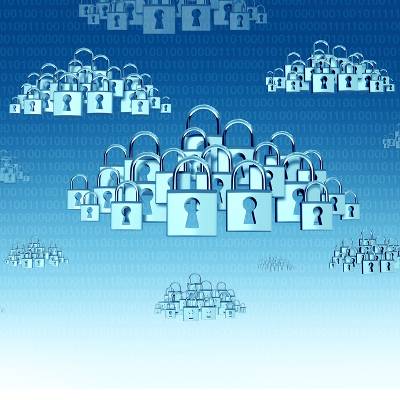 Hosting the party isn't for everyone; it's a matter of space, cost, and responsibility. You could be the life of the party, but nobody would know because you're so busy making sure that everything is set and ready to rumble. Wouldn't it be easier if you could just hire someone to take care of all the little details for you, so you could enjoy the fruits of your labor?
Hosting the party isn't for everyone; it's a matter of space, cost, and responsibility. You could be the life of the party, but nobody would know because you're so busy making sure that everything is set and ready to rumble. Wouldn't it be easier if you could just hire someone to take care of all the little details for you, so you could enjoy the fruits of your labor?
Macro Systems Blog
 The news that Microsoft no longer supports Windows XP, one of its most successful operating systems, was a great blow to many who loved the software. The greatest blow, however, will likely prove to be hackers, who will be able to break into the system now that Microsoft is not providing security patches.
The news that Microsoft no longer supports Windows XP, one of its most successful operating systems, was a great blow to many who loved the software. The greatest blow, however, will likely prove to be hackers, who will be able to break into the system now that Microsoft is not providing security patches.
 Admit it, you've thought about moving some of your computing infrastructure to the cloud, but just couldn't take the leap because there is a perception out there that suggests cloud-based computing systems are less secure than the ones that you house within the confines of your office. The fact of the matter is that every piece of computing infrastructure has the same shortcomings as far as security goes. Whether hosted in a cloud or in an enterprise data server, the thing that makes data security work for business is having the right people managing your information.
Admit it, you've thought about moving some of your computing infrastructure to the cloud, but just couldn't take the leap because there is a perception out there that suggests cloud-based computing systems are less secure than the ones that you house within the confines of your office. The fact of the matter is that every piece of computing infrastructure has the same shortcomings as far as security goes. Whether hosted in a cloud or in an enterprise data server, the thing that makes data security work for business is having the right people managing your information.
 Let's say that you're on the phone with a client going over a major proposal and they utter four words that fill you with dread, "Fax it to me." It's not that you don't know how to send a fax, but you dread faxing because you know that you're in for a big waste of time, especially considering how many pages your proposal is.
Let's say that you're on the phone with a client going over a major proposal and they utter four words that fill you with dread, "Fax it to me." It's not that you don't know how to send a fax, but you dread faxing because you know that you're in for a big waste of time, especially considering how many pages your proposal is.
 How long does it take to boot up your computer when you start your workday? Most people would be fine with a one minute boot time; five minutes can get a little annoying, and anything longer than ten minutes warrants a coffee break. You may not have realized it, but a few extra minutes of boot time can impact the productivity of your company in a big way.
How long does it take to boot up your computer when you start your workday? Most people would be fine with a one minute boot time; five minutes can get a little annoying, and anything longer than ten minutes warrants a coffee break. You may not have realized it, but a few extra minutes of boot time can impact the productivity of your company in a big way.
 The number of employees using their personal devices for work purposes (BYOD) continues to increase rapidly. According to Juniper Research, BYOD will account for over one-third of all mobile devices being used within the next few years. Not adjusting procedures to accommodate for this trend can leave your company's sensitive information vulnerable.
The number of employees using their personal devices for work purposes (BYOD) continues to increase rapidly. According to Juniper Research, BYOD will account for over one-third of all mobile devices being used within the next few years. Not adjusting procedures to accommodate for this trend can leave your company's sensitive information vulnerable.
 One of the most popular business technology trends that we're seeing is employees bringing their own devices into the workplace (BYOD). This trend is due to the popularity of mobile devices (owned by over half of all U.S. adults). While this trend benefits companies in many ways like enhancing mobility, implementing BYOD for a business is not without risks.
One of the most popular business technology trends that we're seeing is employees bringing their own devices into the workplace (BYOD). This trend is due to the popularity of mobile devices (owned by over half of all U.S. adults). While this trend benefits companies in many ways like enhancing mobility, implementing BYOD for a business is not without risks.
 When people talk about "phoning it in," they usually refer to purposely doing subpar work at their job. However, when a computer breaks and someone "phones it in," they're referring to calling remote IT support, which has a completely different connotation because remote IT service is service that's of the highest quality!
When people talk about "phoning it in," they usually refer to purposely doing subpar work at their job. However, when a computer breaks and someone "phones it in," they're referring to calling remote IT support, which has a completely different connotation because remote IT service is service that's of the highest quality!
 It's crucial that your company's network has a strong firewall in place to keep your data safe; although, one firewall may not be enough. In the case of an actual fire, you will want to have a real firewall to keep your servers safe. We're talking about a firewall for your firewall. This sounds redundant, but redundancy makes for good security.
It's crucial that your company's network has a strong firewall in place to keep your data safe; although, one firewall may not be enough. In the case of an actual fire, you will want to have a real firewall to keep your servers safe. We're talking about a firewall for your firewall. This sounds redundant, but redundancy makes for good security.




